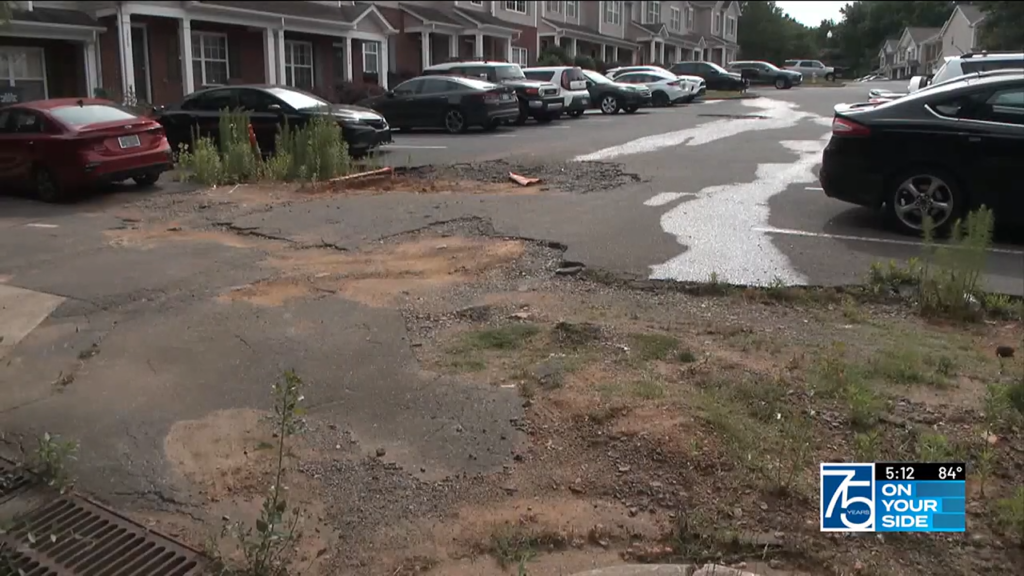Below is a review of the posts on Facebook and LinkedIn from the past week. You can check out the full posts by clicking on the links.

The post on Sunday 6/23/2024 noted 3 Black passengers sue American Airlines after alleging racial discrimination following odor complaint. The lawsuit was filed in federal court in New York. It alleges that as American Airlines Flight 832 from Phoenix to New York was boarding in January, employees removed eight Black men from the plane allegedly over a complaint about “offensive body odor.” And what does video supporting the suit show about these men who were not traveling together? See the post.
Emmanuel Jean Joseph, Alvin Jackson and Xavier Veal are the three plaintiffs. They were on a connecting flight from Los Angeles. They allege that at no point during the other flight did anyone from American Airlines say anything to them about an offensive odor. Joseph a tv correspondent that as he gathered his belongings and walked to the jet bridge, he noticed that only Black men were being removed from the flight. Veal decided to record the incident on his phone.
The lawsuit alleges that the men were held in the jetway for about an hour and then moved to the gate area. There they were told they would be rebooked on another flight to New York later that day. An American Airlines employee told them the complaint about body odor came from a “white male flight attendant.” The video seems to support the suit in at least one way – see the post. And then when another flight to New York could not be found, the men were put back on the same plane. How Jackson described it is also in the post.
The lawsuit also referenced other recent incidents where passengers have alleged discrimination by American Airlines along with a 2017 NAACP travel advisory urging members not to fly on the airline (which was lifted eight months later). What are the plaintiffs requesting by way of relief or damages in the suit? See the post.
Veal said he believes that if it had been a White person, the situation probably wouldn’t have happened. And the statement by American Airlines? Yep, see the post.
TAKEAWAY: Remember that discrimination does not just need to occur in employment to be illegal. But it does need to be proven.

The post on Monday 6/24/2024 told us deaf man sues Atlanta Braves alleging hiring discrimination after being passed over for IT job. Clyde McKinney, Jr., an Alabama resident, filed suit in federal court alleging the Braves violated the Americans with Disabilities Act.
The suit says he had applied for a position as an in-office senior-level information technology officer for the Atlanta Braves based at their Cobb County corporate office. McKinney says he would have been able to perform the job in question, if hired, with or without reasonable accommodation. What did the Braves say in response to a tv request for comment? See the post.
McKinney first filed charges of ADA violation with the Equal Employment Opportunity Commission on Oct. 10, 2023. On Jan. 5, he received a right-to-sue letter from the EEOC. The suit notes that McKinney has had a long career as a data and network system engineer, including for large companies like those mentioned in the post. How he performed those jobs (i.e., the accommodations he sometimes used) is also in the post.
McKinney first applied for a position as Director of IT Engineering and Architecture for the Braves in January 2023 and made it through two rounds of virtual interviews with the company’s human resources staff. But then on March 22, 2023, he was in a third interview with Senior Vice President of Technology Scott Waid, which interview was conducted along with McKinney’s translator. During the interview, Waid got into McKinney’s disability, asking the questions noted in the post. There was allegedly “little to no conversation about McKinney’s comprehension of the array of technical issues the job required.” And then there was the question from Waid about an experience McKinney believes had no relevance to the IT Director position – see the post for more on that. Waid then allegedly discussed the potential cost of having a translator hired in-house to assist McKinney and talked about the potential effect of McKinney’s hearing impairment (which is in the post).
On April 20, 2023, McKinney was informed he would not be getting the job with the Braves. He then took to social media as noted in the post. His comments were shared with the Braves’ HR department, who then met with McKinney in mid-May. Then on June 8, 2023, McKinney contacted the EEOC to file a charge of disability discrimination. After that, a member of the Braves’ HR department told McKinney that they had interviewed Waid and what Waid told them (which is in the post). What else HR allegedly told McKinney (further supporting his suit) is quoted in the post. In a July meeting in July with HR, McKinney mentioned his EEOC complaint and a separately filed complaint with the Civil Rights Division of the Department of Justice. HR ceased communications at that point. That is when McKinney decided to sue. What the suit is requesting is noted in the post.
The Braves filed an answer to McKinney’s lawsuit, denying most of it. They do admit some of the allegations; those are listed in the post.
TAKEAWAY: Train your employees, especially managers, on what they can and cannot say and do – their actions will come back to haunt you and could lead to legal liability for the company and a big financial hit.

The post on Tuesday 6/25/2024 noted nonprofit organizations (including 2 HOAs) pay over $5.8 Million to resolve allegations of fraudulently obtaining pandemic-related loans. Multiple nonprofit organizations—including two private country clubs and two homeowners’ associations—have paid $5,809,021.60 to settle allegations that they violated the False Claims Act by knowingly submitting false claims and obtaining Paycheck Protection Program (“PPP”) loans for which they were not eligible.
You may recall that Congress created the PPP in March 2020 as part of the Coronavirus Aid, Relief, and Economic Security (CARES) Act, to provide emergency financial support to those suffering the economic effects caused by the COVID-19 pandemic. The CARES Act authorized billions of dollars in forgivable loans to small businesses, but certain entities organized under section 501(c) of the Internal Revenue Code were not eligible for PPP loans.
Rancho Santa Fe Association is an HOA and 501(c)(4) nonprofit organization. It serves members in its San Diego community of over 4,000 residents, with a golf club, tennis club, private sports fields, The Inn, nearly 60 miles of private equestrian and pedestrian trails, shops, restaurants, and a full-time security patrol. In April 2020, Rancho Santa Fe Association applied for a PPP loan; it received a loan of over $1.5 million. Now the US is saying that the Association knew or should have known that as a 501(c)(4) nonprofit it was not eligible to receive the PPP loan, yet it caused the Small Business Administration (SBA) to forgive the loan and to pay lender fees and interest to the bank that processed the loan. Rancho Santa Fe Association settled the allegations against it; how much that cost them (remember it was over a $1.5M loan) is in the post.
And then there is Pine Mountain Lake Association, an HOA and 501(c)(4) nonprofit organization, in California near Yosemite National Park. Pine Mountain Lake Association is a gated community with lots of amenities including those listed in the post. In April 2020, the HOA applied for a PPP loan and received a $687,500 loan. In January 2021, Pine Mountain Lake Association applied for a second PPP loan; how much it received that time is in the post. Pine Mountain Lake Association has also agreed to repay monies to settle the Fals Claims Act violation claim brought against it – its settlement amount is also in the post.
The post also details other nonprofit entities who were subject to Fals Claims Act claims and settled those allegations. Those were also not small amounts.
Interestingly, all of the settlements resolve claims brought by an individual under the qui tam or whistleblower provisions of the False Claims Act. More detail on how that law works is in the post. From all of those settlements (the total of which is noted in the post), the individual will receive almost $700,000.
TAKEAWAY: condo and homeowner associations must still abide by the law. Getting caught not doing so can be costly – and those are members’ dollars. Get a community association lawyer involved early and often.

The post on Wednesday 6/26/2024 told us the EEOC sued a Maryland medical clinic for discriminating against employee for not disclosing disability during job interview. All Day Medical Care Clinic, LLC, operates five medical clinics in Maryland. IT allegedly fired its scheduling assistant on her first day of work shortly after she requested reasonable accommodations for her visual impairments. The suit alleges that after she informed All Day about her vision impairments and need for accommodation, it questioned why she did not raise these issues in her interview and immediately terminated her. What else it did (or, as relevant, did not do) is in the post.
The EEOC alleged a violation of the ADA; which ADA provisions the EEOC cited are noted in the post. The suit was filed in federal court after conciliation failed. What the suit seeks by way of remedy/damages is listed in the post.
TAKEAWAY: Know the law, including your rights and obligations and what you can or cannot ask an applicant or employee about their (possible) disability. Employment counsel can be of great help.

In the post Thursday 6/27/2024, we saw RV manufacturer settled disability-related attendance lawsuit for more than $95K. The company also agreed to make policy changes to settle claims it fired a worker for missing too much work because of his disability. Let’s look in more detail.
Keystone RV Co. will pay $95,460 to settle the EEOC’s lawsuit alleging that Keystone terminated the employee for missing too much work because of a medical condition in violation of the ADA. Details of the consent decree (other than the monetary payment) are in the post. Keystone could not immediately be reached for comment. The EEOC reminded everyone that if an employer can accommodate an employee’s need for leave without undue hardship, it cannot refuse that accommodation just because it has a strict attendance policy.
Prior to the settlement the court had granted summary judgment to the EEOC in late March. Just a bit of what the judge said is noted in the post. Keystone says it has already made changes such as those listed in the post.
TAKEAWAY: Managers must be trained to recognize the difference between disability-related absences and other absences (and the effect on employment).

The post on Friday 6/28/2024 told us HOA is failing to fix massive hole in parking lot. The embedded video gives you a better idea of the scale and what is at issue.
Townhome owners are questioning why their HOA can’t afford to fix a massive hole in their parking lot that’s only grown larger in the two years since it first formed. Assessments have increased by over $50/month in the last 4 years, but the hold is still there – and growing. A tv station’s investigation found that the management company hired by the HOA has a history of hiring employees convicted of financial crimes.
Cyril Dosato said he and his wife can’t even use the parking spaces outside of their townhome because Mother Nature has taken over the parking lot crater. Bushes and tree stems are growing out of the cracked asphalt that extends across the lot’s entire bottom. The timeline of when the first repair ticket went into the HOA and what has happened since (along with the probable cause) is in the post.
An attorney for the HOA sent an email response. The content (including a deflection back on owners – true or not) is in the post. Residents say they haven’t been given any estimate as to how much the repair would cost, but only simplified budgets and expense sheets despite requesting more detail. What did the HOA attorney say about that? See the post.
The TV station’s research into the HOA raised new questions about the company it hired to help run the community, Cusick Management, where Alexandra Thompson worked until 2018. What do voluminous court records show abut Thompson? See the post (while sitting down). But she’s not the only Cusick Management employee with a financial crime conviction on her record. In 2013, Janette Parker pleaded guilty to three counts of HUD fraud in a federal case where prosecutors accused her of artificially inflating home prices to drive up deposits and profit. Parker’s role with Cusick? See the post. Cusick did not respond to the TV station’s story despite numerous requests. But the HOA attorney did – see the post.
TAKEAWAY: This is NOT how things usually work in well-run and well-managed condo or homeowners’ association; the vast majority of management companies are legal and above-board. But there still might be funding issues with the association. A community association lawyer can help you get to the bottom of it and offer suggestions to get out of the financial hole.

Finally, in the post yesterday 6/29/2024, we talked about FMLA leave: Court says no valid leave request (and no retaliation claim). Sometimes a question comes up as to whether FMLA leave was properly requested. That’s where the duck test can come in. You know, if it walks like a duck, quacks like a duck and looks like a duck, it’s a duck. In this case, Blake, a firefighter-paramedic, argued he didn’t resign. He said he asked for FMLA leave. But the federal appellate court determined that his “leave request” walked, quacked and looked like a resignation, so his FMLA claim couldn’t succeed. Let’s dive deeper.
First, yes, one must have sympathy for this first responder. Kyle Blake was hired as a firefighter in 2012. And he became a firefighter-paramedic in 2015. What firefighter-paramedics do, and how much of it, is in the post (astounding!). So in 2016, Blake asked to be a firefighter again. His request was approved but never carried out. Two years later, a staffing shortage had firefighter-paramedics working more than ever. In August 2018, Blake was burned out from working overtime; he was told while wrapping up a 24-hour shift that he had to stay on to work a 24-hour overtime shift. If he had done that, his 48 hours on duty would have led to the 48-hour overtime shift he was already scheduled for, with no break in between. So Blake told his boss that he “couldn’t do it anymore” and “would turn [his] stuff in if [he] needed to.” What his supervisor (the district chief) then asked, and Blake’s response, are in the post. A memo from the district chief to the assistant chief detailed that incident. What else it added is in the post. But that’s not the end.
Before Blake left the station that day, he followed the rules by confirming another paramedic would cover the overtime shift. Later that day, he had more communications with the district chief – see the post. Blake thought it was all cleared up (see the post), but he found out the next day he was wrong (again, see the post). A city personnel form said Blake had resigned “NOT in good standing.” Blake sued for FMLA interference and retaliation.
What Blake had to prove to be successful in his FMLA interference claim is noted in the post. And keep in mind that the FMLA does not require employers to “divine unspoken (and even unthought) requests for leave.” Details of the finding on appeal on the interference claim are in the post.
But that left Blake’s retaliation claim. Again, the elements for that are also in the post. Blake couldn’t get out of the starting gate there because he never told anyone at work that he had an FMLA-qualifying condition and didn’t request FMLA leave for it. What the appellate court said is in the post. So it affirmed judgment in favor of the city.
TAKEAWAY: While there are no magic words an employee must use, there must still be enough to alert the employer to the FMLA leave request and basis for that request. Get an employment lawyer involved right away.

 York, Pennsylvania 17403
York, Pennsylvania 17403